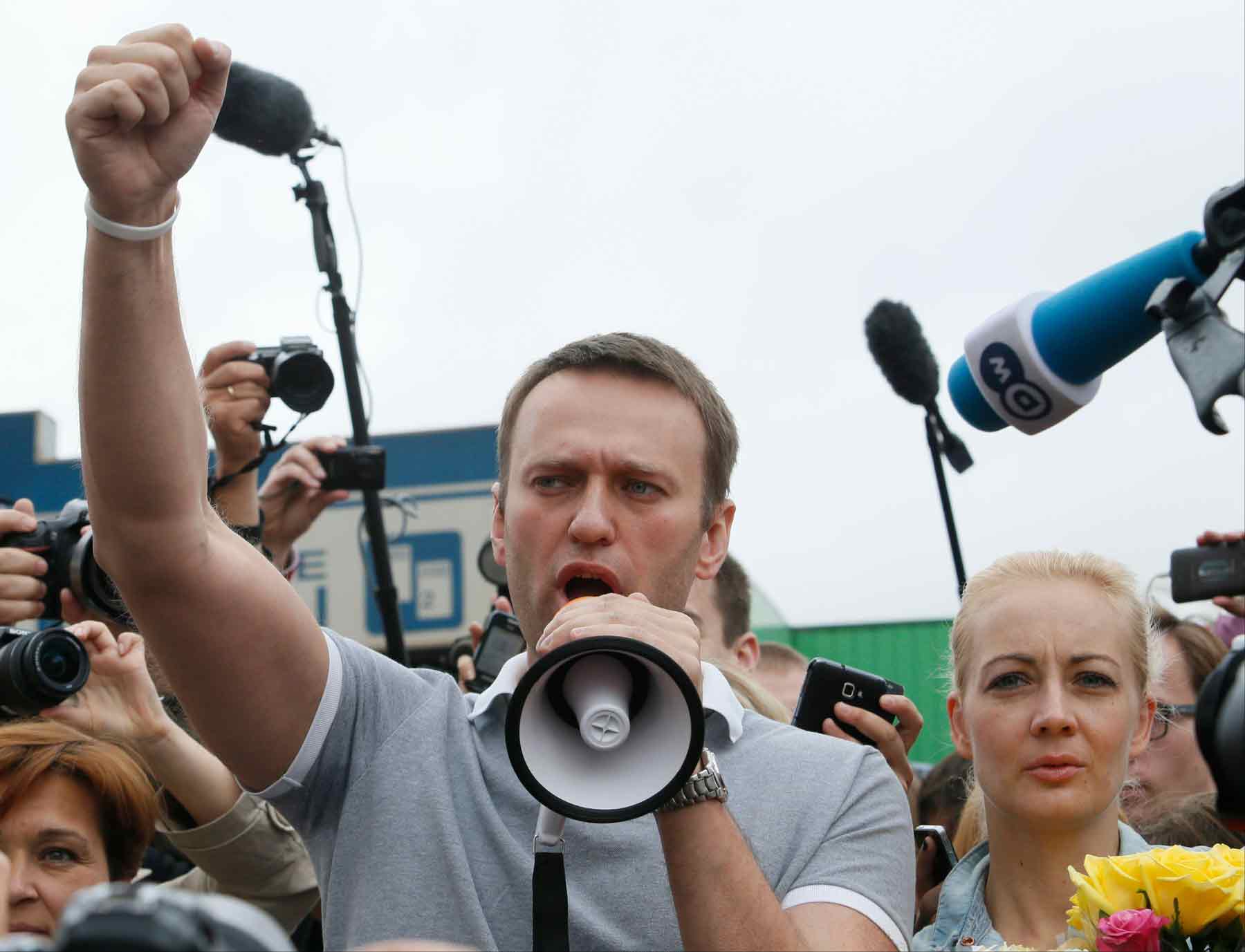“If you really want to defeat Putin, you have to become an innovator.”
Yulia Navalnaya spoke those words to the European Parliament in Strasbourg on Wednesday, less than two weeks after her husband, Russian opposition leader Alexei Navalny, died in an Arctic prison in Russia.
She called Russian President Vladimir Putin “a bloody mobster,” arguing he can't be stopped with another resolution or another round of sanctions. “Not diplomatic notes, but investigations into the financial machinations. Not statements of concern, but a search for mafia associates in your countries, for discreet lawyers and financiers who are helping Putin and his friends to hide money,” she said.
Navalnaya added that such an approach would be welcomed by tens of millions of Russians who are against Putin’s regime and his war of aggression in Ukraine.
The EU – along with the U.S. and the UK – has blamed Putin and Russian authorities for Navalny’s death on 16 February, a claim the Kremlin vehemently denies. Associates of Navalny have also claimed that talks were underway to exchange him for a Russian prisoner in Germany shortly before his death.
European lawmakers on Thursday adopted a resolution calling on the EU to support the Russian opposition and hold Putin criminally and politically responsible for Navalny’s death. MEPs also reiterated their support for Navalnaya.
In a separately adopted resolution, the EP called on the bloc to provide whatever Ukraine needs to regain control over the Russian-occupied territories two years after Russia launched its full-scale invasion. Last week, the Council of the European Union adopted its 13th package of individual and economic sanctions targeting Putin’s regime.
But MEPs face a balancing act, according to Fabian Burkhardt, a political scientist at the Leibniz Institute for East and Southeast European Studies (IOS) in Regensburg.
Strong support from the EU could pose a challenge to Navalnaya’s legitimacy within Russia as a potential successor to her husband. In short, the more the EU supports Navalnaya, the more difficult it could be for her to maintain the image of a Russian politician in Russia, rather than a foreigner, Burkhardt argued.
At the same time, if the EU were to throw its weight behind Navalnaya, she might naturally become Russia’s de facto opposition leader – and it’s unclear how such a development would be received by anti-Putin activists. “The question is whether they actually need an opposition leader or whether what is needed is a platform where different groups can discuss with each other,” Burkhardt explained.
If you really want to defeat Putin, you have to become an innovator.
Navalnaya’s speech at the European Parliament on Wednesday was not her first appearance on the international stage since Navalny’s passing. The 47-year-old unexpectedly delivered a speech at the Munich Security Conference hours after news broke about her husband’s death, stating: “But if this [Navalny’s death] is true I want Putin and all of his entourage, Putin’s friends and his government to know that they will be held accountable for what they have done to our country, our family, and my husband.”
While in Germany, she also met with Belarusian exile politician Sviatlana Tsikhanouskaya – another stay-at-home mother who took over her partner's political fight and one who could offer an example of a path forward for Navalnaya. After her husband, Sergei Tikhanovsky, was arrested in 2020 while campaigning against authoritarian leader Alexander Lukashenko in Belarus’ presidential election, she ran instead – and received 56 per cent of the vote, according to independent news reports. Now, she leads the Belarusian opposition in exile.
The main parallel between the two women, according to Burkhardt, is that both have earned respect and admiration.
 Alexei Navalny and his wife Yulia address supporters and journalists in Moscow in 2013.
Alexei Navalny and his wife Yulia address supporters and journalists in Moscow in 2013.
But there are important distinctions. Tsikhanouskaya has very clear electoral legitimacy since she took part in elections and achieved convincing results. Neither Navalnaya nor her husband have gotten that far. Navalny ran unsuccessfully for president in 2018 and before that mayor of Moscow in 2013. Tsikhanouskaya also has a history of coordinating with other opposition forces, while Navalny was seen as a lone fighter.
And a fundamental difference is of, course, that Tsikhanouskaya’s husband is still in prison. “He’s a hostage. The Lukashenko regime could still put pressure on her.”
As for Navalny’s’ legacy, Burkhardt doesn’t think she will fully replace her husband, given his storied political career. But, he argued, Navalnaya, who was also a close advisor to Navalny, is still cause for concern for Putin. “It can be assumed that the Kremlin will try to restrict Navalnaya as a politician as much as possible,” while Putin is likely to portray her as an “instrument of the West.”
Shortly after Navalny’s death, Navalnaya recorded a video in which she committed to continuing her husband’s mission. “I ask you to share this anger with me. Anger, rage, hatred for those who have dared to destroy our future,” she said.
Sign up to The Parliament's weekly newsletter
Every Friday our editorial team goes behind the headlines to offer insight and analysis on the key stories driving the EU agenda. Subscribe for free here.